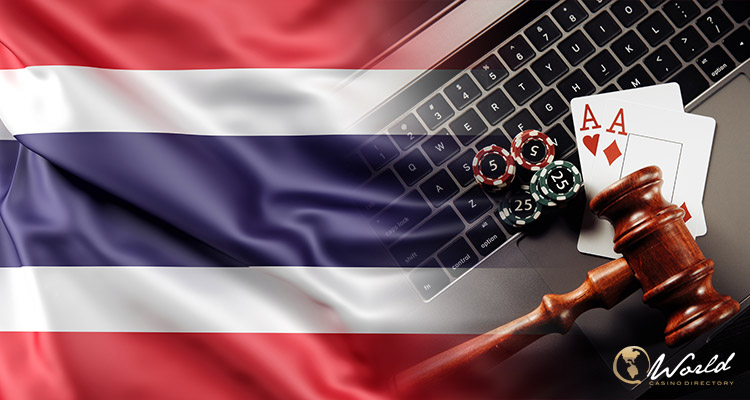Thailand’s House of Representatives has agreed to establish a committee of 60 members to look into the possible opening of entertainment facilities, involving casinos, to tackle the long-running problem of non-legal casinos and improve the economy of the country, as suggested in a motion tabled by members of parliament (MPs) from different parties.
Supporters of the proposal:
Those who backed up the motion are according to Inside Asian Gaming: Non Paisanlimcharoenkij, an MP from Move Forward Party for Nonthaburi, Theodchart Chaipong, an MP from Pheu Thai for Chiang Rai and Chatchawal Kong-udom, a list-MP from United Thai Nation Party. Additionally, at the session of the House, which was presided by the House Speaker Wan Muhamad Noor Matha, and which was held on October 26, the proposal for the formation of the said commission to study the said issue was considered.
Also, a list-MP from a Move Forward Party, Rangisman Rome, showed his support. However, he also warned that an almost identical“working body“ was formed by the former House of Representatives to investigate the mentioned problem.
Taking preventive measures against malicious influence:
According to the MP from the opposition, he was notified that a firm with its headquarters in Tak province, charged of participating in the illegal trade in human organs and human trafficking, managed to send its representative to present its opinion in front of the committee, most likely with evil intent. In this regard, Rangisman highlighted that there is now a need for the government to take precautions against malicious influence.
The aforementioned MP from the Move Forward Party said he believes that if the country officially legalizes casinos, it may cause the collapse of casinos operating on the borders, resulting in the diversion of Thai players’ money to government income which will be used for nation’s development. Then, a list-MP from United Thai Nation Party emphasized that the primary reason for the loss of revenue is the fact that many Thai players have to travel to neighboring countries to gamble unhindered. He added that he “first proposed the legalization of casinos 30 years ago, but many disagreed,“ according to the Bangkok Post.
A minimum of 5 entertainment venues that involve casinos should be strategically placed across Thailand, meaning 1 in the South, North, West, East and the Central Plains, according to him. Additionally, these would offer local jobs, resulting in an end to the need for some Thais to travel abroad in order to find job.
Tourism operators are not against the legalization of casinos:
Tourism operators have nothing against the official legalization of casinos in the country. However, they are more concerned that the benefits of this could be more evident in certain interest groups.
Furthermore, operators from Phuket feel that the entire casino business should be placed in second-tier provinces instead of main tourist destinations.
In this regard, the chairman of the Association of Thai Travel Agents, Sisdivachr Cheewarattanaporn, commented: “Casino complexes operate in most of Thailand’s neighbors, notably Singapore and Genting in Malaysia. If Thailand wants to legalize such complexes, it should have appropriate regulations to prevent social impacts. Revenue contribution must be fair and transparent, whether in the form of public-private investment or granting concessions to private investors.
In the initial stage, authorities should allow each region to have only one complex to weigh the economic and social impact in each area. Our greatest concern is law enforcement, which has always been weak in Thailand. Moreover, if these projects are owned by particular interest groups, it might create more problems than benefits for the country. While most foreign tourists do not choose holiday destinations based on casino complexes, new attractions can help refresh tourism sites that have remain same for decades.”
Relatedly, according to the advisory president of the Phuket Tourist Association, Bhummikitti Ruktaengam, there is a possibility that Phuket may not require legal casino facilities as the province has already managed to attract foreign tourists. He also didn’t want to express his opinion when it comes to the official legalization of casinos, because the aforementioned tourism operators still don’t have enough details about the motion.
Additionally, he said that if the primary purpose of legalization is to generate extra revenue from foreign clients and put domestic clients on the back burner, the government should review second-tier provinces that have the necessary qualities but are less known among foreign visitors.

